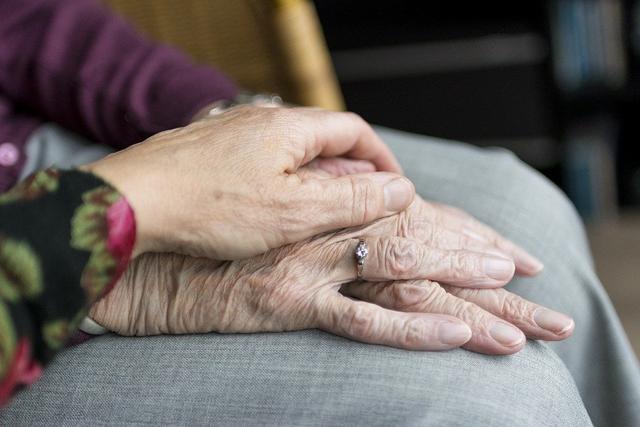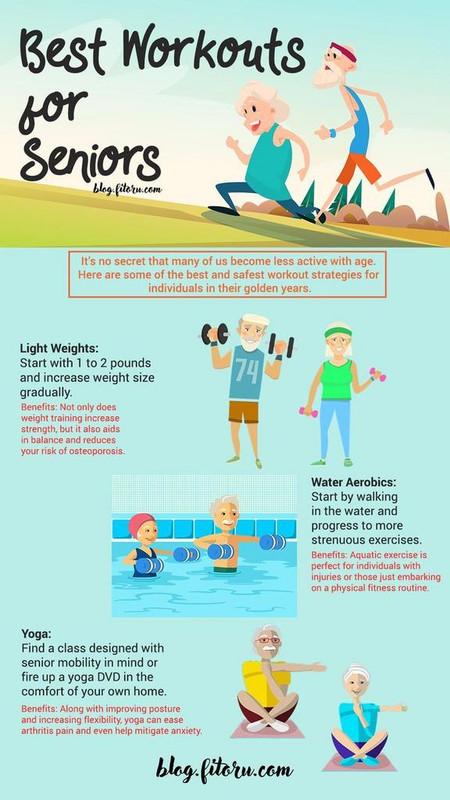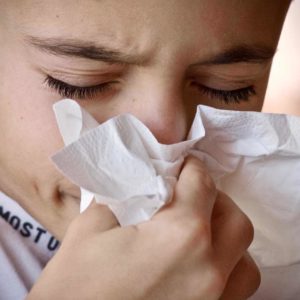Just because we are getting older, doesn’t automatically mean we’re going to get bigger, To get to the weight gain issues, we need to look beyond the number on the scale- we have to consider the body composition.
As a matter of fact, that is one characteristic of aging. As we lose the good, below-the-skin fat, the bad one, known as the visceral fat increases. It is No.1 cause of inflammation, and inflammation is said to be the root cause of nearly any disease: asthma, osteoporosis, arthritis, diabetes and Alzheimer’s and heart disease.

Another sign of aging is muscle loss. Muscles are heavier than fat, but burn more calories- but if you fail to exercise them, and keep eating at the same rate as when you exercised, you are up for a fat accumulation and weight gain issues.
These two factors, higher visceral fat, and lower muscle rate indicate the lower insulin sensitivity, which further makes your body produce it more, producing more problems as well.
As brilliantly explained in this article, if you shift your hormonal functioning, a number of problem arises. Take insulin, for example. When it’s not working properly, it increases glucose levels in your blood and fat as well. So, you’ll run in circles if you don’t do something about your muscles and fat ratio.
Therefore, it’s not just aging, it’s a pathology caused by a lifestyle.
So, to curb the aging process and pathological occurrences, we need to do the following three things:
1. Eat a well-balanced protein-based diet at daytime (an important tidbit)
2. Sleep at least 7 hours
3. Move our bodies
Why is daytime eating important?
Three hormones are at play: insulin, ghrelin, and leptin. They regulate your appetite and the sense of satiety, together with above-mentioned fat storage.
Eating food, activates our body and metabolic processes. It needs to rest at night instead.
Night eating means an inopportune activation of the whole system. Therefore, it leads to an inevitable weight gain issues. Ideally, you should leave that 14-hour break at night for fasting, not eating. This is metabolism and you’ll lose fat without official dieting.
It’s a natural diet that helps the body ward off the whole range of the above-mentioned diseases.
An easy answer to how to prevent weight gain issues would be to lower the fat-to-muscle ratio. Our bodies can build new muscles, but the problem is that older muscle is slower with muscle protein synthesis.
That’s why the protein diet is a must. Our bodies need protein (8g/kg) to grow and upkeep the muscles.
Next important point: move your body. You need to activate those muscle fibers. It helps you stay active and independent as well.
If, for any reason, you struggle with independence and need help, consider hiring a personal assistant for elderly people. As you get older, health problems, metabolic changes, and medication may affect your days, so they can assist you with virtually every aspect around everyday activities.
These factors- muscle loss, hormonal changes, same quantity food without exercise may also affect your body mass index (BMI), making it more difficult to lose the excessive weight.
Waist weight is especially dangerous- the bigger the belly, the higher the chance of developing some serious diseases, such as heart disease, cancer or type-2 diabetes. Or a stroke. Keep your waist circumference at less than half your weight.
Two-and-a-half hours a week divide you from a healthier, more vigorous, and why not say it- longer life.
So how do you do that?
Fit Father Project suggests the following strategy:
1. Find a rock-solid motivation: Everything else will fail you, sooner or later. Ask yourself why you want to lose weight three times in a row to find the real driver. Looking good is not good enough. But sticking around with your family longer is the cause worth fighting for. Or sweating, for that matter.
2. Enough Sleep: Now that you’ve changed your mindset, make sure you sleep at least 7 hours a day. It is absolutely essential, as we’ve mentioned earlier. When you’re tired, you eat to keep yourself awake. Your body can’t process the food you eat then. Hormones wreak havoc, so you end up hungrier and more nervous as well. Lack of sleep be beaten by any healthy diet or workout.
3. Change your diet: Don’t succumb to fad diets, they won’t do you any good in the long run. instead, strive for a balanced one, including protein, like tuna or chicken or turkey, healthy carbs like quinoa and colorful vegetables, and hydrate a lot.
4. Activate your body: Their suggestion is to do anything you enjoy for 30 minutes daily- be it gardening, walking or riding cruiser bicycles on beach. Make your blood flow and your joints lubricated. When you get used to that routine as well, you may proceed to the prescribed exercise plan.
This is how you increase your muscle mass that makes your metabolic system burn more calories while remaining balanced, stable, mobile and agile.
There are many upsides to the strength training- and training in general since it slows down the cell aging by turning down the process in the chromosomes. It can shun bone and mobility defects, even slow down a cognitive decline.
But before you use additional weights, take your biomechanics into account and make sure you can carry your bodyweight first. “Step, squat, lunge, walk, jog, hop, and skip”, sounds almost like a saying. And to avoid injuries, practice balance and flexibility
The goal is to stay functional to perform everyday activities, like carrying bags from the market, climbing these three steps or playing with your toddler grandchildren. You need to be an “active ager”.

If it’s too overwhelming, make squats, ride bicycle like beach cruiser with gears and make push-ups your priority, because you’ll need strong legs and upper body to get up- from the bed, or if you fall. As simple as that.
Be careful though, you need to warm up and cool down a lot. Recovery takes a lot longer. Take longer rest between exercise days, and if you’re sore, wait till it’s gone before you go to your next workout.
Take good care of yourself. Seniors have special nutritional needs- eat whole grains, fiber foods, fruits and veggies, protein. Make sure your calcium level is optimal (1200-1500 mg), so drink milk, either regular or lactose-free (300 mg per glass). Take vitamin D and antioxidants (vitamins E and C).
And again, don’t forget the one food we really take for granted- water! This process might be slow, but better lose your excess weight slowly and steadily than quickly and ineffectively.
Conclusion
As we age, our body systematically ages as well. You may not be able to influence your genetics, but you can certainly alter your lifestyle choices. Thus, make feeding your body a balanced diet and exercising your priorities. It’ll pay off.
AuthorBio: Anne Harris is an HR specialist working for londonlive-incare.com. She eagerly shares her knowledge with her audience on various blogs. When she isn’t writing or attending wellness conferences, she likes to pack her rucksack and ride her day away on her bike or spend time with her friends.
- How To Create A Safe And Comfortable Home Environment For In-Home Care In Boca Raton? - July 16, 2024
- 10 Trendy Black Nail Ideas To Elevate Your Nail Game - May 6, 2024
- Getting A Free Divorce In Virginia? Here’s What To Expect - April 24, 2024





No Comments